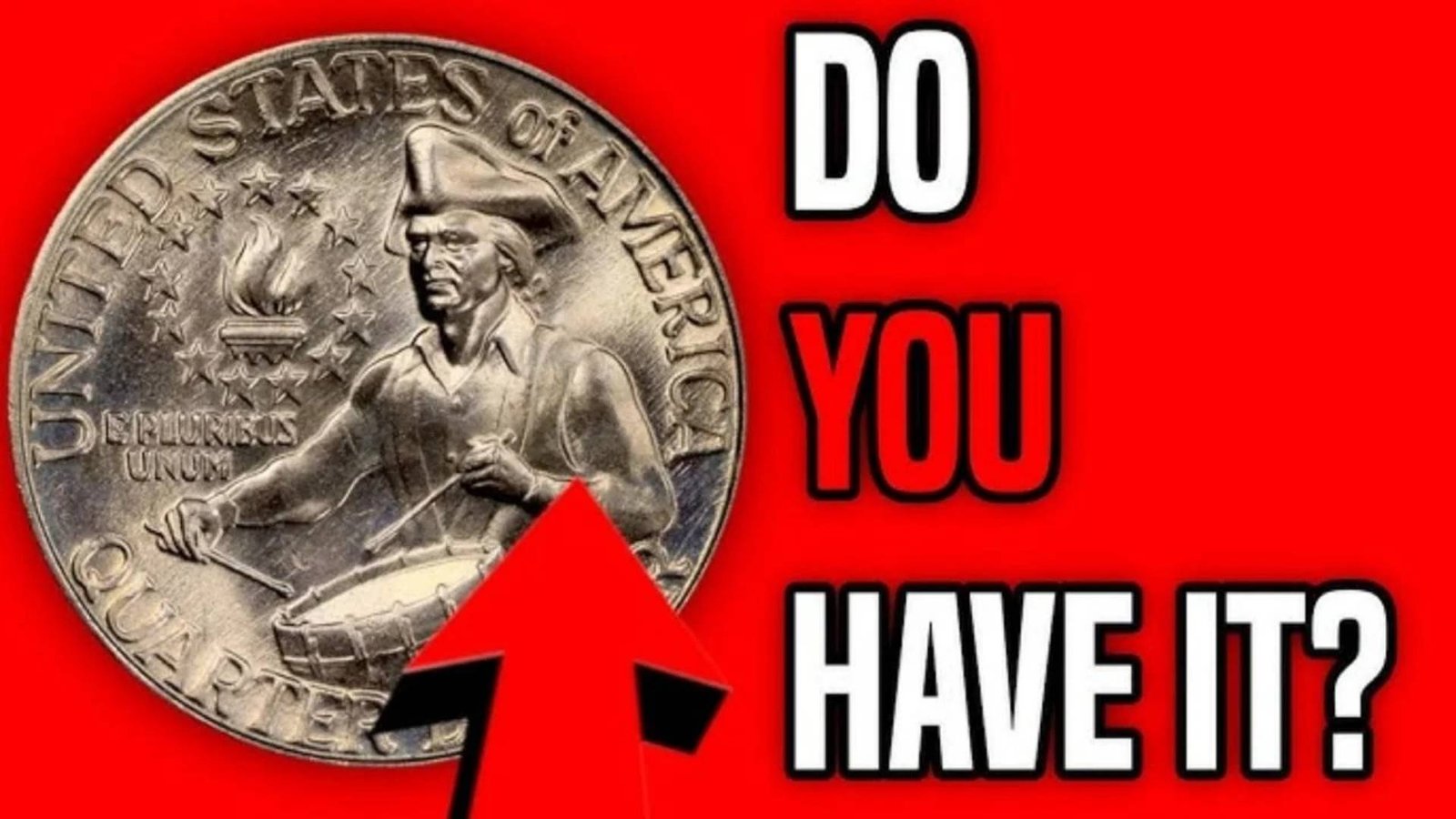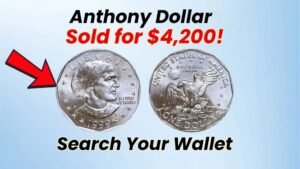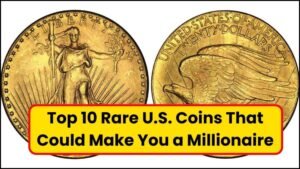What if the coin jingling in your pocket right now was worth a fortune? The Rare Bicentennial Quarter has stunned collectors and everyday Americans alike, with some valued at up to $1 million. Could one be hiding in your change jar?
What Is the Bicentennial Quarter?
In 1976, the U.S. Mint released a special Bicentennial Quarter to celebrate America’s 200th anniversary of independence. Unlike ordinary quarters, these coins feature a unique drummer boy design on the reverse, making them instantly recognizable. But what most people don’t know is that some versions of this quarter are shockingly rare and unbelievably valuable.
The History Behind the Quarter
The Bicentennial Quarter was minted between 1975 and 1976. Instead of the usual eagle, it carried a patriotic design created by Jack L. Ahr. Millions were struck for circulation, but a select few were minted in special conditions, such as silver-clad editions and proof strikes. These rare versions are the ones that have collectors willing to pay staggering amounts.
Why Some Bicentennial Quarters Are Worth $1 Million
Not every Bicentennial Quarter is worth more than 25 cents. The real value lies in rarity, minting errors, and condition. Certain coins struck in 40% silver or with rare mint errors have fetched six-figure to seven-figure prices at auctions. The combination of history, patriotism, and scarcity drives their demand sky-high.
Key Features That Make a Quarter Valuable
| Feature | What It Means | Value Potential |
|---|---|---|
| 40% Silver Composition | Special collector’s issue | Hundreds to thousands |
| Mint Errors (double die, off-center) | Struck incorrectly | Thousands to millions |
| High-Grade Proof | Perfect, mirror-like strike | High collector demand |
| Limited Production | Fewer coins minted | Greater rarity & value |
If your quarter has any of these traits, it could be more than just spare change — it could be a hidden jackpot.
How to Tell If Your Quarter Is Rare
Collectors look for subtle details that separate a valuable Bicentennial Quarter from the ordinary.
- Check for “S” mint mark (San Francisco proof issues)
- Look for silver shine (40% silver composition vs. clad copper-nickel)
- Inspect for minting errors like doubling or off-center strikes
- Verify condition — uncirculated coins are worth far more
Fascinating Facts About the Bicentennial Quarter
- Over 1.6 billion Bicentennial Quarters were minted — but only a handful are rare.
- Some proof versions were sold directly to collectors in 40% silver sets.
- A high-grade silver-clad error coin once sold for nearly $1 million at auction.
- Collectors worldwide see it as one of the most iconic U.S. coins ever released.
Collector’s Tips: How to Spot a Jackpot Coin
- Always use a magnifying glass to check for doubling or minting flaws.
- Compare your coin’s weight — silver quarters weigh more than standard clad ones.
- Store potential finds in protective cases to maintain their grade.
- Consider a professional appraisal before selling — rare coins can skyrocket in value with proper authentication.
Value Comparison
| Type of Bicentennial Quarter | Approximate Value |
|---|---|
| Regular Circulation (Clad) | $0.25 – $1 |
| Proof (Copper-Nickel) | $5 – $20 |
| 40% Silver Proof | $50 – $500 |
| Rare Mint Error | $5,000 – $50,000+ |
| Unique High-Grade Silver Error | Up to $1,000,000 |
FAQs
Q: Are all Bicentennial Quarters valuable?
No, most are worth face value, but rare errors and silver strikes can be worth thousands.
Q: How do I know if my quarter is silver?
Silver versions weigh more (about 5.75g vs. 5.67g) and have a smoother, brighter edge.
Q: Where can I sell a rare Bicentennial Quarter?
Auction houses, coin dealers, and certified online platforms are the best options.
Q: Is it worth keeping a regular Bicentennial Quarter?
Yes, while not all are rare, they remain historic and popular collectibles.
Conclusion
The Rare Bicentennial Quarter is proof that hidden treasures can still be found in everyday life. While most quarters are just spare change, a lucky few hold life-changing value — sometimes even worth $1 million. So the next time you sort through your coins, take a closer look. History, mystery, and maybe even a fortune could be in your hands.




